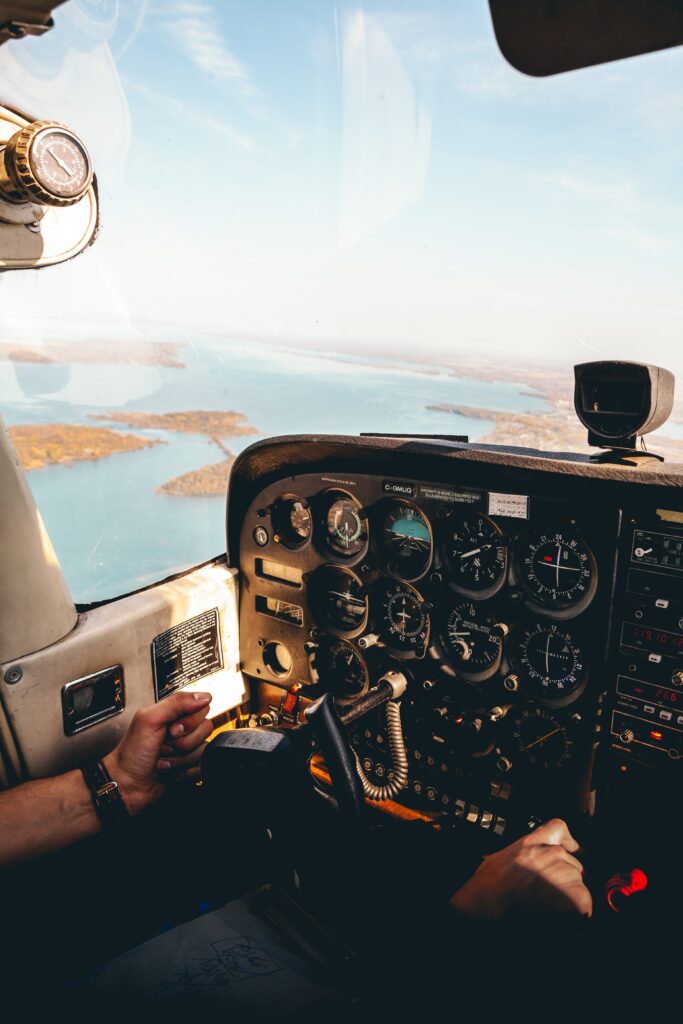Are you planning to buy an airplane and wondering which one to choose? Selecting the perfect airplane for your ultimate adventure is not an easy task. There is no one-size-fits-all solution when it comes to choosing an airplane. It all depends on your needs and requirements. I will provide some guidance on how to choose the perfect airplane for your mission.
Identify your Mission and Circumstances
Identifying your mission is the first step towards selecting the best airplane for the job. You need to determine your needs and requirements to select an airplane that best matches them. Consider factors such as geographical location, airfield/airspace conditions, trip specifications, maintenance, costs, certification, parking, and personal preferences.
To identify your mission and circumstances, you need to ask yourself a series of questions that can help you determine the most suitable airplane for you. For example: Where do you plan to fly? What are the local weather conditions? How many passengers and how much luggage will you carry? How much range do you need? How fast do you want to go? Do you prefer to do your own maintenance or hire a professional? What is your budget? What are your personal preferences?
Pick the Features Your Airplane Needs to Have
By carefully evaluating each of these factors and how they relate to your mission, you can make an informed decision and choose an airplane that will meet your needs and exceed your expectations. Here are some guidelines to pick your perfect airplane considering your mission and circumstances:
- Airfield/Airspace Conditions: The airfield/airspace conditions can affect aircraft performance or landing gear requirements of your new airplane. They might also dictate the minimum avionics you need to have installed to comply with regulatory and operational requirements.
- Geographical Location: The geographical location will determine the performance requirements and features like short take-off and landing capabilities. Depending on the local weather conditions and your requirements to go places, it could also dictate VFR/IFR capabilities.
- Trip Specification: The trip specifications influence your selection of the perfect airplane massively. Deliberate compromises might be necessary. Consider factors such as the number of passengers, baggage, speed, range/endurance, cruising level, fuel availability, purpose such as business trips or occasional $200 hamburger, flight rules, and installed equipment like weather radar or flight into known icing capabilities.
- Maintenance: Your choice of whether you want to do your own maintenance or hire an aeronautical professional might dictate if you decide to select an experimental/amateur-built airplane, a non-complex motor-powered, or a complex motor-powered airplane. In addition, the make/model might be selected based on available airplane maintenance organizations, airplane mechanics, and airplane parts.
- Costs: The costs of owning and operating an airplane heavily depend on the purchase price, maintenance costs, and operating costs. Sometimes also on the type of airplane because the costs like insurance and approach and landing fees might be dependent on the airplane features like conventional/retractable landing gear, maximum take-off and landing weight, and noise emissions to name a few.
- Certification: The question of whether to go with an experimental/amateur-built or a certified airplane is a major decision to be made. Both have their advantages and disadvantages, but some of the differences are decisive.
- Parking: The parking situation potentially does define some airplane specifications such as the construction of the airplane. For example, tube and fabric airplanes do not particularly like precipitation, and so parking outside on the apron will exclude this kind of airplane.
- Personal Preferences: Personal preferences should not dominate the decision-making, but they are an important thing to be considered. Most aviators only buy a small number of airplanes in their lifetime, and those airplanes should bring joy to their owners. Personal preferences might be towards a specific make/model or an airplane specification the owner likes.
Conclusion
Choosing the perfect airplane for your ultimate adventure requires careful consideration of several factors. By following these guidelines, you can choose the perfect airplane for your ultimate adventure. If you need help identifying your mission to select the perfect airplane, contact us at Quest Aeronautics. We can work with you to choose the perfect airplane for your duties and ultimate adventure!
About Quest Aeronautics
Quest Aeronautics is a state-certified engineering office for aviation, dedicated to shaping the future of general aviation by providing innovative and cost-effective solutions to enhance aircraft performance and operations. With a focus on CS/FAR-23 and experimental/amateur-built (E/A-B) aircraft, Quest Aeronautics provides a range of services including flight testing, aircraft operations and maintenance consulting, high-quality aviation products, and tailored support for E/A-B projects. Collaborating with industry-leading partners, Quest Aeronautics is committed to delivering unparalleled support and expertise to individuals and organisations in the general aviation market.
About Author
Sebastian, the founder of Quest Aeronautics, is a driven and enthusiastic individual with a passion for aviation. Before delving into aviation, he gained valuable experience as a chemical process engineer and laboratory technician. Sebastian holds a Master of Science in Engineering and a commercial pilot licence, with several fixed-wing aircraft ratings under his belt. He has also completed an introduction course for fixed-wing performance and flying qualities flight testing at the National Test Pilot School in Mojave, CA and is compliance verification engineer for flight.

